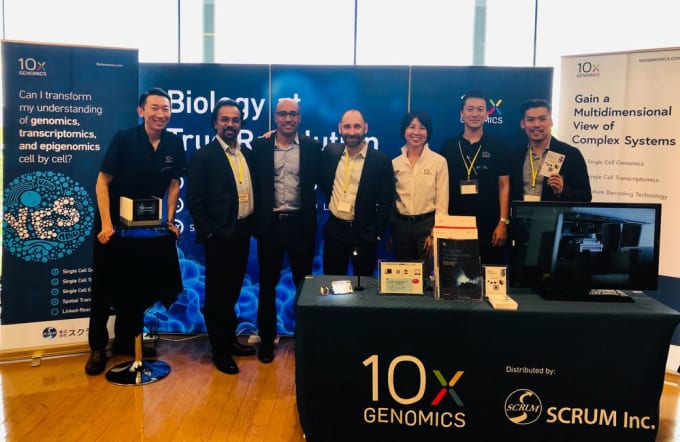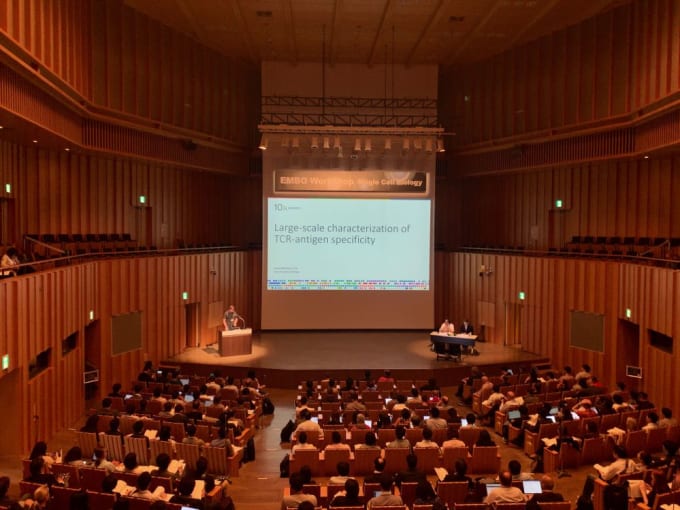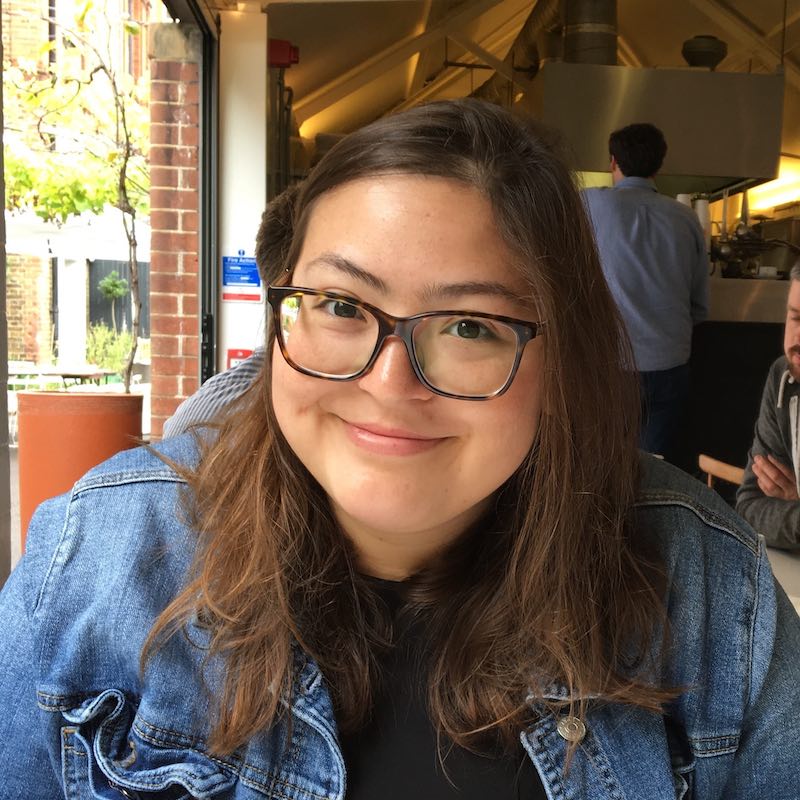Travel to Tokyo Yields Two Productive Meetings
In May, 10x Genomics traveled to Tokyo, Japan to attend the EMBO Single Cell Biology Workshop, an open scientific conference, where members of the scientific community discussed the latest innovations in single cell research and technology. Just days later, 10x scientists attended the Human Cell Atlas (HCA) General Assembly Meeting, an organizational meeting where members of the HCA consortium came together to share their progress. We were fortunate to be able to attend both meetings, learning all about the scientific breakthroughs in single cell biology and then understanding how this knowledge is being applied to HCA projects.

During the EMBO Workshop, we had a rewarding time talking to attendees about our products and the research their capabilities are generating. Tarjei Mikkelsen, vice president of biology at 10x, presented our large-scale TCR antigen dataset. This publicly available dataset pairing almost 200,000 CD8+ T cells with 44 specific antigens, demonstrates the immense and scalable power of the Single Cell Immune Profiling Solution with Feature Barcoding technology. (See our latest Application Note for details). We were thrilled by the excitement researchers expressed and look forward to seeing what biological insights they will extract from this rich new resource.

At the EMBO Workshop we also connected with some of our users, such as Aki Minoda from RIKEN, a large research center in Japan. Minoda described a 10x dataset from which she is deriving new insight into how the immune system changes, declines, and ages, and provided some ideas about how we might counteract these changes. Sarah Teichmann from the Wellcome Sanger Institute also shared how she’s been using data derived from our Immune Profiling Solution to discover fundamental new insights into the mechanism of T-cell receptor recombination and how it drives diversity in the adaptive immune system.
Then, at the The Human Cell Atlas (HCA) General Assembly Meeting, we learned about the most recent advancements of the global effort to create comprehensive reference maps for all human cells. The hope is that these maps will provide a foundation for not only understanding what normal biology looks like, but also how to recognize diseased cells and non-natural conditions. The project began in 2016, with its first meeting taking place in October of that year. Since then it has grown exponentially. The HCA consortium now includes 1,400 members from 68 different countries and almost 900 different institutions.
Now, every six months, HCA members get together to discuss the state of the project, its current challenges, and plans going forward. In the past few years, the meetings have generally focused on developing plans for the HCA, discussing recruitment, sample collection, which technologies to use, and other concerns in getting started with this massive undertaking. However, this most recent meeting reflected a new phase for the HCA.
Many members are now beginning pilot projects for the Atlas, producing data from hundreds of individuals and millions of cells, in some cases, from several different major organ systems. It was particularly exciting for us as we got a first-hand look at the research that had been generated using 10x technologies and how it will impact the development of the HCA. Dr. Mikkelsen commented, "There was a major shift. Researchers have moved on from technology evaluation and project planning, to large-scale data generation enabled by products that we’ve developed here at 10x. It really drives home the impact of providing robust, commercial solutions for single cell profiling."

If you’re interested in learning more about the HCA meeting, the entire conference is currently streaming on their website.
References and Additional Reading Single Gene Expression Solution Page → Single Gene Expression Product Literature → Single Cell Immune Profiling Solution Page → Single Cell Immune Profiling Product Literature →
